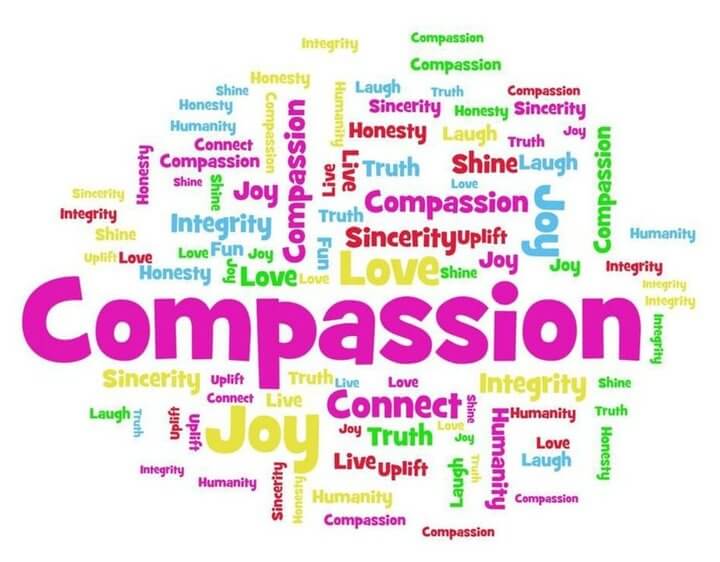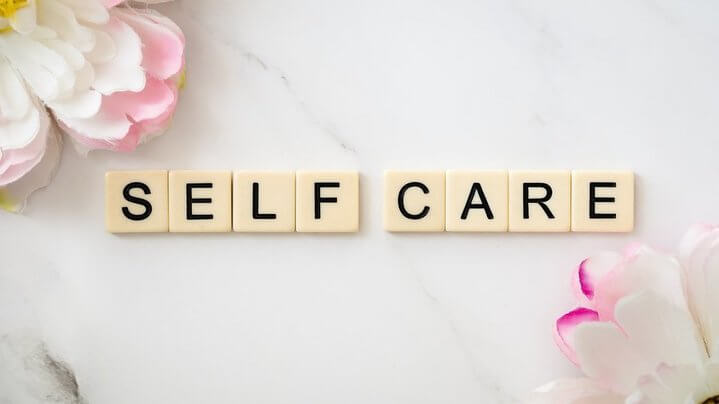Welcome to the transformative journey of emotional healing!
In today’s fast-paced and chaotic world, we may find ourselves caught up in the whirlwind of daily life. Too often we neglect our own emotional well-being. The result? A constant state of stress, anxiety, and a disconnection from our true selves.
But here’s the thing: you don’t have to let your emotions run wild or feel trapped in this cycle. The key to finding peace and inner growth lies in practicing emotional self-awareness.
In this blog post, we’ll dive deep into the realm of emotional healing and guide you on a path of self-discovery and growth.
We’ll explore what it means and how it can impact your life in a positive way. We’ll also provide practical steps to nurture your emotional well-being starting today.
You’ll learn great techniques to reconnect with yourself. Also, you will be able to identify and address lingering emotional struggles and cultivate a sense of peace and happiness from within.
So, let’s dive in!
What is emotional healing
Imagine this scenario: Anna, a hardworking woman, has been carrying emotional pain from past experiences for years. It’s been affecting her relationships, self-esteem, and well-being.
She often finds herself feeling overwhelmed by negative emotions. She is unaware of what triggers her emotional reactions and struggles to find inner peace.
Emotional healing is the transformative journey that Anna decides to embark on. It starts with her willingness to understand and address her emotional pain. She recognizes that healing is a process involving self-reflection and self-compassion. So, she becomes committed to her personal growth.
Through emotional healing, Anna learns to identify her emotional triggers. She becomes aware of how these triggers affect her thoughts, behaviors, and relationships. With this awareness, she takes proactive steps to navigate these triggers with grace.
Anna begins to develop emotional self-awareness. She can now recognize and understand her own emotions much better. This allows her to respond to her emotions in a healthy and constructive way. She is no longer overwhelmed or controlled by her emotions.
Moreover, emotional healing equips Anna with the tools to build resilience. She learns how to bounce back from setbacks and cope with stress. And, she adapts to life’s challenges with a sense of inner strength.
It’s essential to know that emotional healing doesn’t erase the pain. It doesn’t fix everything overnight. Instead, it empowers people like Anna to gain insights and develop healthier coping mechanisms. It helps you find your unique path to healing and growth.
The ultimate goal of emotional healing is to find inner peace and emotional balance. It’s about freeing yourself from the weight of past pain and creating a healthier, more fulfilling life.
It is a personal journey. Each step brings you closer to living a life rooted in emotional well-being.
Healing emotions: embracing gratitude, compassion, and love
Emotional healing can impact our well-being in a very positive way. There are various approaches to navigating our mental and emotional states. But, we can begin by embracing some of the most fundamental emotions. These are gratitude, compassion, and love.
Gratitude has the incredible ability to shift your perspective and uplift your spirits. You start expressing gratitude for the people, situations, and experiences in your life.
You cultivate a deeper appreciation for the abundance that surrounds you. It helps you recognize your blessings and infuses your days with a sense of joy and contentment.
Compassion allows you to gain a broader perspective on your emotional experiences and those of others. You develop the capacity to forgive, let go, and learn from challenging situations. It opens the door to empathy and understanding.
Love, both self-love and love for others, holds tremendous healing power. You feel a genuine sense of love and acceptance towards yourself.
Then, you create a nurturing environment for personal growth and emotional well-being. You start to embrace your flaws and imperfections.
Extending love to others creates a ripple effect of kindness and positive energy. This, in turn, enriches your interactions and relationships.
Embracing emotions like gratitude, compassion, and love brings balance into our lives. It promotes emotional health and well-being. As we cultivate these healing emotions, they will influence every aspect of our lives.

Understanding Emotional Problems
Emotional problems encompass a wide range of challenges that can impact our well-being.
Some of these are feelings of stress, negative self-worth, or emotional reactivity. They can arise from various sources such as trauma, grief, or even everyday life events. If left unaddressed, they can lead to both physical and emotional symptoms, like:
- Fatigue
- Headaches
- Forgetfulness
- Loss of interest in activities you once enjoyed.
To overcome emotional problems we need first to identify their causes. Then we can work on effective solutions. Each person’s experience is unique. But, there are common threads that connect these issues and potential paths toward healing:
One of the primary causes of emotional problems is trauma. Past traumatic experiences can leave deep emotional scars. They can even affect our daily lives and relationships.
Addressing these traumas through therapy or support groups can be instrumental in the healing process.
Relationships play a significant role in our emotional health. Toxic or unhealthy relationships can cause great emotional distress. They may also erode self-worth and hinder personal growth.
Setting healthy boundaries and surrounding ourselves with supportive people can foster positive change.
Life events can also contribute to emotional problems. Job loss, financial difficulties, or major transitions can be very stressful. So, it’s important to develop healthy coping mechanisms.
Stress management techniques, meditation, and self-care practices can provide support during challenging times.
Addressing emotional issues requires patience, self-compassion, and a willingness to seek help. No problem is insurmountable, and by taking proactive steps, we can pave the way for emotional healing and growth.
If you’re facing emotional challenges, know that you’re not alone. Reach out for support and embrace self-care practices that nurture your well-being. With time and effort, you can reclaim your emotional balance and live a more fulfilling life.
Navigating emotional stress
The effects of emotional stress on our well-being can be overwhelming.
We all experience fluctuations in our moods, but when stress takes hold, it can have a profound impact. According to the American Psychological Association:
Stress affects all systems of the body including the musculoskeletal, respiratory, cardiovascular, endocrine, gastrointestinal, nervous, and reproductive systems.
Yet, with the right approach, healing is possible.
With self-awareness, you can understand the triggers that contribute to your stress. This awareness lays the foundation for the healing process.
Remember that taking time for yourself is not selfish. You need time to restore your emotional balance. Several actions you can take to help you manage stress are:
- Adequate rest
- Organic and healthy food
- Regular physical exercise
- Joy and fun from activities of your choosing
- Take time to meditate and practice relaxation
In some cases, seeking professional help from counselors or therapists can be beneficial. They may help you navigate the complexities of your emotions.
Also, take time to learn effective stress management techniques. Be self-aware and practice techniques that resonate with you. This way, you may get valuable insights that can serve you throughout your life.
Healing takes time and effort, but you are not alone in this journey. Embrace self-care, seek support from loved ones, and access professional help when needed.
You can build resilience and find strength in the face of emotional stress. Allow yourself to believe in the possibility of healing, because it is achievable.

Emotional blockages: what they are and how to release them
Imagine emotional blockages as stubborn roadblocks that hinder the flow of your emotions. They stem from past traumas, unresolved conflicts, or negative beliefs. Generally, they prevent you from experiencing and expressing your emotions.
Emotional blockages can leave you feeling stuck, lost, frustrated, and overwhelmed. They can cause emotions like sadness, anger, or a sense of disconnection.
The first step to releasing them is self-awareness. Recognize that emotional blockages hold valuable lessons for us. They provide an opportunity for growth and self-discovery.
Afterwards, there are several techniques that can help:
Mindfulness and meditation
These are great practices that can help you cultivate awareness.
– From Mindful.org: Mindfulness is the basic human ability to be fully present, aware of where we are and what we’re doing, and not overly reactive or overwhelmed by what’s going on around us.
– Meditation is a practice that involves quieting the mind, finding stillness, and directing our attention inward. It helps you cultivate a sense of peace, clarity, and self-awareness.
Emotional Freedom Technique (EFT)
This is an effective tool for releasing emotional blockages. According to The Tapping Solution Foundation:
A combination of Ancient Chinese Acupressure and Modern Psychology, Tapping quickly gets to the heart of the issue, working to rewire the brain, calm the amygdala, and create safety in the body to ease stress and release trauma.
Reiki
The International Center for Reiki Training explains that Reiki is a Japanese technique for stress reduction and relaxation that also promotes healing.
It is administered by “laying on hands” and is based on the idea that an unseen “life force energy” flows through us and is what causes us to be alive. If one’s “life force energy” is low, then we are more likely to get sick or feel stress, and if it is high, we are more capable of being happy and healthy.
Reiki is a simple, natural and safe method of spiritual healing and self-improvement that everyone can use. It has been effective in helping virtually every known illness and malady and always creates a beneficial effect. It also works in conjunction with all other medical or therapeutic techniques to relieve side effects and promote recovery.
Seek guidance
Always look for professional help when needed. A therapist or counselor can offer valuable insights and support. A trusted friend or family member may also help you see a different perspective.
Engaging in creative outlets can promote healing as well
Painting, writing, dancing, playing an instrument, or any other of your choosing. These activities provide a channel for expression and release.
They strengthen our mental health and build resilience against future struggles. We can tap into our emotions, gain clarity, and uncover the root causes of our emotional blockages.
Releasing emotional blockages takes time and patience. Embrace the tools and techniques that resonate with you. Be open to the lessons that your emotions are teaching you. You’ll find yourself moving towards a life of greater emotional freedom and well-being.
Easy Techniques for Emotional Healing
When it comes to inner healing, the journey begins with self-compassion and patience.
Think of your emotions as the colorful flowers in a vibrant garden, each with its own unique beauty and significance. You can use them as guides, focusing you on what matters in life.
There are simple techniques that can bring comfort, relaxation, and renewal to our emotional state. Consider trying out practices like:
- Deep breathing exercises
- Journaling
- Yoga
- Immersing yourself calming music
- Carving out time for self-care
- Indulging in activities that bring relaxation and joy
- Positive affirmations
- Connecting with nature
These techniques can give you an immediate release of stress and tension. They can also help you clear your mind and think with more assertiveness. If practiced over a long time, they can provide deep emotional healing and a much better quality of life.

Embracing Your Emotional Healing Process
The emotional healing process often involves looking within and challenging our beliefs. We must ask difficult questions and reconnect with a wiser part of ourselves.
It requires motivation, discipline, and a positive mindset to navigate the challenges that we face.
Related article: Understanding the Nature of Motivation: Change Your Life Today
Allowing yourself to feel and be aware of your emotions is the first step towards managing them. It takes courage to confront and process your emotions, but it is through this process that true healing begins.
Being aware of your emotions and patterns is key to understanding why certain triggers put you off balance.
Remember, feeling is healing. By engaging with your emotions, you create space for healing and release. It may be uncomfortable, but by doing this you open doors to peace, acceptance, and personal growth.
This journey is personal, so it’s important to remember that there isn’t a one-size-fits-all approach. Take things at your own pace and find the strategies that best work for you.
Stay committed to this journey of self-discovery. Know that as you move forward, you are cultivating resilience, inner strength, and a greater sense of wholeness.
Evidences of Emotional Healing: Recognizing the Signs of Progress
Sometimes it’s easy to overlook the signs of progress along the way. However, by becoming aware of them, you can celebrate the changes happening within you.
Inner signs of emotional healing may manifest as:
- A greater capacity to express your emotions
- Facing difficult emotions without the need to distract yourself from them
- Resilience in the face of challenges
- Developing healthier coping mechanisms
- Introspection
- Gaining a deeper understanding of the events around you
External signs may be visible to those around you. People might notice in you an uplifted mood and a more optimistic outlook on life. You may also:
- Improve your communication skills
- Increase your control over your emotions
- Gain the ability to reflect on the past without being overwhelmed by negativity
- Become calmer and more honest in your conversations with others
Physical signs of emotional healing are just as important:
- You may observe a more relaxed posture
- Softer facial expressions
- A greater engagement in activities that bring you joy and comfort
- Improved physical health
- Better sleep patterns
- Healthier eating habits
You’ll start experiencing moments of genuine joy, contentment, peace, and excitement. Embrace these signs as beacons of hope, for they show that you are on a path of healing and growth.
Wrapping Up
Emotional healing doesn’t erase negative experiences from your memory. But, it empowers you to navigate them with greater ease over time.
It requires you to be present and learn how to manage your emotions when they arise. This healing is about making peace with your past, present, and future.
Recognize your emotional responses and create tools that will help you move forward. Practice self-awareness and grow from your experiences and emotions. This takes effort and dedication, but it is worth it!
If you’d like to know more about the basics of emotions, you may like the following related article:
Empower Yourself: How to Master Your Emotions for a Fulfilling Life
Now I’d love to hear from you! Have you embarked on a journey of emotional healing from a painful experience? What steps or techniques have helped you in your healing process?
Share your thoughts and experiences in the comments below. Let’s continue supporting one another on our paths of emotional well-being.


0 Comments